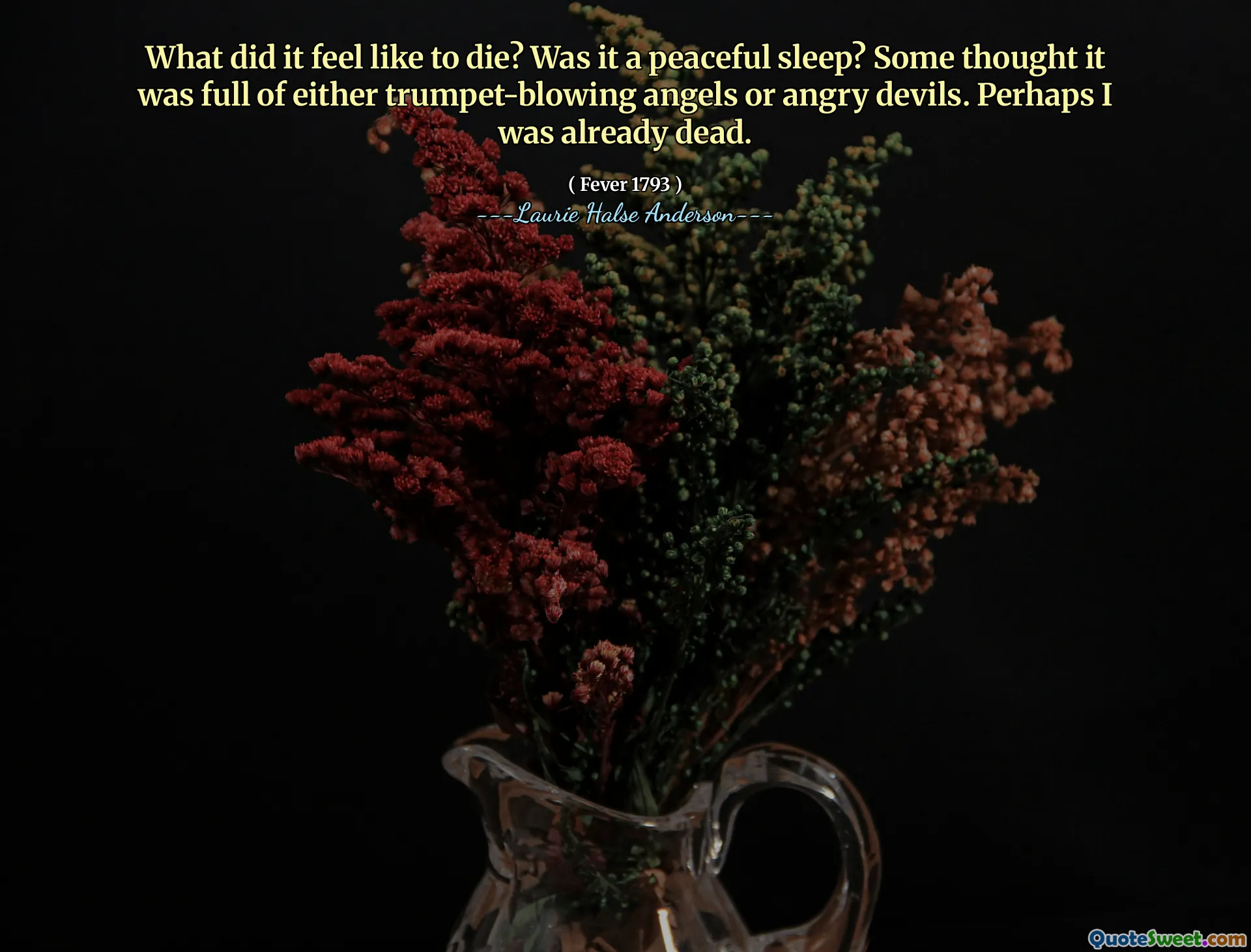
What did it feel like to die? Was it a peaceful sleep? Some thought it was full of either trumpet-blowing angels or angry devils. Perhaps I was already dead.
This quote delves into the profound and existential questioning of what it means to die, blurring the line between life and death. The imagery of death as a peaceful sleep hints at the common metaphor used to soften the harshness of mortality, suggesting a calm transition rather than an abrupt end. The mention of trumpet-blowing angels versus angry devils encapsulates the spiritual visualization of the afterlife as a battleground of good and evil, hinting at the varied perceptions and beliefs surrounding death. The narrator’s pondering—'Perhaps I was already dead'—opens a haunting introspection, implying a sense of numbness, detachment, or an altered state of existence. This evokes a deep curiosity about the moments preceding death, the consciousness one might have, and the stories our beliefs tell us about what lies beyond life. Such reflections are particularly resonant during times of crisis or illness, where the boundary between life and death becomes blurred, prompting both fear and curiosity. The quote encourages us to consider how different cultures and individuals conceptualize this transition—whether as a peaceful sleep, a celestial celebration, or a turmoil of evil spirits. It embodies a universal human fascination with mortality, urging us to confront the mystery that accompanies the end of life, and perhaps, to reconsider how we perceive the moments leading up to our final breath.








